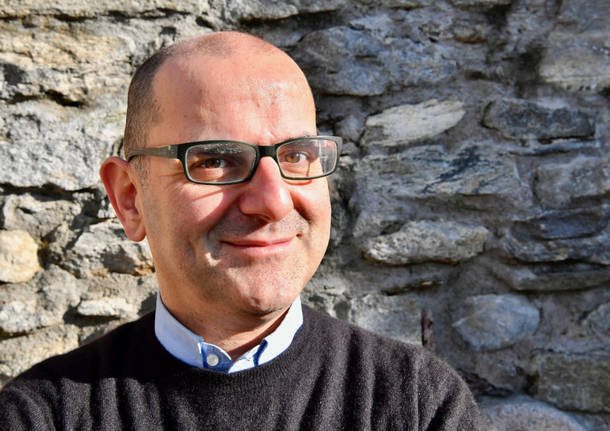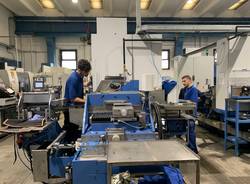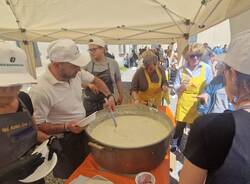Time with the children that develops relationships and increases autonomies
Alberto Pellai talks about the wonderful opportunities and how to seize them, including the difficulties of staying indoors closed for weeks with his children

We asked Alberto Pellai (a doctor and psychotherapist of the evolutionary age who is also very popular on social networks) how to “stay afloat” closed in the house with his children for weeks and we discovered among the many problems also wonderful opportunities to take advantage of. Just (try to) take it in the right perspective.
With some simple strategy: “Take care of your emotions to avoid transmitting excessive anxiety or insecurity even with the tone of voice or facial expressions and always tell the truth“. Of course, with words commensurate with the age and therefore the ability to understand, but without hiding anything, not even mourning: “Otherwise as adults we risk losing the child’s trust and above all we deny them the possibility of sharing their sadness with those who can console them”. Another element to cultivate time: “Before, time with our children was above all a time to do a thousand things. Now we have the possibility to cultivate a time with our children, simply to share in order to be well together”.
Children like to have their parents at home: “this makes them feel safer, even if sometimes they tend to become a bit lazy”, jokes Pellai before revealing the flip side of the coin. And so that children at the same time suffer so much from the zeroing of the routines to which they were accustomed, the denial of relationships with friends, peers and the lack of exploration, a dimension on which their growth feeds. “The result is often regressions, from sleeping in bed to bed-wetting,” warns the expert.
The advice for parents is to work on autonomies, to consolidate those acquired or conquer new ones, by objectives.
Very useful in this sense is the symbolic game that develops at home involving children in domestic activities: “This not only helps them to grow but, through sharing, cultivates the relationship with their children”.
When everything will start again it will be necessary to train them to keep a rhythm and structure, lost in the months without school and help them to reconnect “maybe already in the summer”, Pellai suggests, keeping in mind that for those who had just started the crèche or the nursery school it will be even more difficult to start again. How to start over.
Adolescents and pre-adolescents (after 10 years)
“The children have been incredible in adapting to legal measures that took away their lifeblood,” says Pellai. “The risk now is that they will lock themselves in their bedrooms. We try to be good coaches for them”. How? For example, also in this case, helping them to develop their autonomies and cultivate the relationship with them. “Let’s avoid being obsessive about performance, from the room to the school results: it’s not the time”.
THE SCHOOL: “Distance learning, so immediately ready, even if then redefined and rearranged, has saved for a lot of the world of children. And it has allowed us parents to enter or listen to a world that we have always been excluded from, but for the children it is difficult to find the concentration in the virtual classroom so let’s help them to stay in that situation avoiding the multitasking that in the meantime leads them to chat with friends. But let’s leave them free to organize their homework for example. They have to hand them in, let’s watch out for that, but let’s avoid correcting them: it’s not up to us. Let’s help them be more autonomous in running the school and less dependent on our intervention”.
VIDEOGAMES: in this situation, even the expert agrees that it is possible to expand the time dedicated to video games. “Maybe, however, let’s try to avoid it always being the same. Maybe we choose one for each day of the week, compare difficulties and objectives”.
SHARING: from TV to music to pastimes, there are many areas where you can create sharing with your children: “Let’s try, for example, to choose a TV series that is new for both of us and watch it together. It can become a topic or a starting point for discussion at the table. Or, without fear, let’s try to exchange playlists to discuss, possibly without judging, what we like, or at least save, each other’s favourite music.
TAG ARTICOLO
La community di VareseNews
Loro ne fanno già parte
Ultimi commenti
lenny54 su I no vax sono tornati a colpire in provincia: imbrattati i muri della redazione di Varesenews
malauros su I no vax sono tornati a colpire in provincia: imbrattati i muri della redazione di Varesenews
Felice su I no vax sono tornati a colpire in provincia: imbrattati i muri della redazione di Varesenews
PaoloFilterfree su A Varese Salvini prova a ricucire passato e futuro della Lega, ma Bossi non c'è
axelzzz85 su A Varese Salvini prova a ricucire passato e futuro della Lega, ma Bossi non c'è
elenera su A Varese Salvini prova a ricucire passato e futuro della Lega, ma Bossi non c'è














Accedi o registrati per commentare questo articolo.
L'email è richiesta ma non verrà mostrata ai visitatori. Il contenuto di questo commento esprime il pensiero dell'autore e non rappresenta la linea editoriale di VareseNews.it, che rimane autonoma e indipendente. I messaggi inclusi nei commenti non sono testi giornalistici, ma post inviati dai singoli lettori che possono essere automaticamente pubblicati senza filtro preventivo. I commenti che includano uno o più link a siti esterni verranno rimossi in automatico dal sistema.